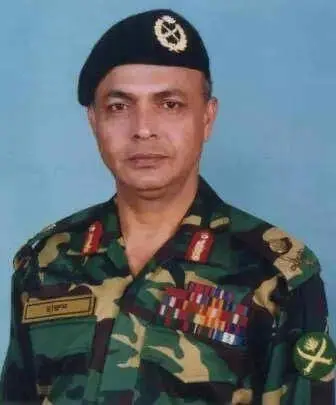
Bangladesh’s most decorated military leaders, was found dead in a guest room at the Chittagong Club
A Life of Service and Honour
Lieutenant General (Retd.) M Harun-Ar-Rashid, one of Bangladesh’s most decorated military leaders, was found dead in a guest room at the Chittagong Club on Monday morning. At 77, his passing marks the end of a storied career that spanned decades from the battlefields of the Liberation War to the corridors of diplomacy and corporate leadership.
Table of Contents
Born in 1948 in Hathazari, Chattogram, Harun-Ar-Rashid joined the Pakistan Army but defected during the 1971 Liberation War, fighting valiantly for Bangladesh’s independence. For his bravery, he was awarded the prestigious gallantry title Bir Protik. He later rose to become the Chief of Army Staff, serving from 2000 to 2002.
After retirement, Harun transitioned into public service and diplomacy, serving as Bangladesh’s ambassador to Australia, New Zealand, and Fiji. He also held leadership roles in civil society, notably as Secretary General of the Sector Commanders Forum, advocating for war veterans and national integrity.
Legal Shadows and Destiny Group Controversy
Despite his illustrious military career, Harun’s post-retirement years were marred by controversy. He became president of Destiny-2000 Limited, a multi-sector conglomerate later embroiled in allegations of financial fraud and embezzlement. In 2012, amid mounting pressure from investors and regulators, Harun was arrested and later sentenced to four years in prison by the Anti-Corruption Commission in 2022.
On August 4, 2025, Harun had traveled to Chattogram to attend a court hearing related to the Destiny Group case. He checked into the Chittagong Club’s VIP guest room the previous evening. When he failed to appear in court and did not respond to calls, staff broke into his room and found him unresponsive on the bed.
Police and family members suspect a brain haemorrhage as the cause of death. His body was transferred to the Combined Military Hospital in Chattogram, and no postmortem was conducted per family wishes.
The Final Hours: What We Know
According to reports, Harun arrived in Chattogram on Sunday afternoon and checked into the club around 4 p.m. He briefly left the premises and returned later that night. The next morning, when he failed to respond to calls or appear in court, concern grew among his associates and club officials.
An army vehicle had arrived to escort him to the court, but he was nowhere to be found. Staff entered his room through the balcony after repeated knocks went unanswered. He was found lying motionless on the bed, and emergency responders confirmed his death shortly after.
The suddenness of his passing, especially on the eve of a legal hearing, has sparked speculation. However, authorities have not indicated foul play, and the family has opted for a quiet burial at the family graveyard in Katirhat village, Hathazari, following a namaz-e-janaza at Chittagong Cantonment.
Legacy and Reflection
Harun-Ar-Rashid’s life was a tapestry of valor, leadership, and complexity. From his role in the Liberation War to his tenure as Army Chief, he was a symbol of national pride. Yet, his later years reflect the challenges of navigating public scrutiny and legal accountability.
His involvement with Destiny Group remains a controversial chapter, but it does not erase his contributions to Bangladesh’s military and diplomatic landscape. His death, though sudden, offers a moment for reflection—on the fragility of legacy, the weight of public service, and the human dimensions behind headlines.
As Bangladesh mourns the loss of a war hero and former military chief, the nation is reminded that even its most decorated figures are not immune to the trials of life. Harun-Ar-Rashid’s story is one of triumph and tragedy, and his final chapter leaves behind questions, memories, and a legacy that will be debated for years to come.
India Airlifts 160 Illegal Bangladeshi Nationals from Ghaziabad to Agartala for Deportation